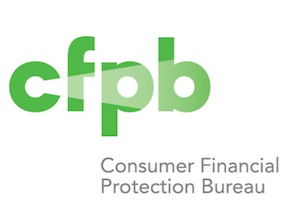As the 2021 tax filing season wraps up, now seems to be as good of a time as any to take a look at a commonly asked question: Should you pay taxes with a credit card?
We will discuss some of the nuances in this post, but for now let’s cut to the chase. For many people, the answer is “no.” Credit card debt is a major financial hurdle for millions of people. Why take it on if it’s avoidable?
When it comes to your income taxes, credit card debt is usually avoidable, and you’ll be better off paying interest and fees to the IRS than paying interest to a credit card company.
However, there are some scenarios in which it might make sense to use a credit card. Again, those are the exceptions to the rule.
In General, Skip the Credit Card
If you have tax liability (meaning you owe money rather than being owed a refund when you submit your return), then ideally you would make the payment required to cover the full tax liability. However, sometimes that is not possible. If you can’t pay the balance you owe, first make sure you still file your return. The IRS has separate penalties for failure to file and failure to pay. By filing, you avoid late filing penalties. Yes, you will be subject to late payment fees and interest, but at least you can avoid some penalties by filing.
Second, you could consider an IRS Payment Plan (also known as Installment Agreements in the case of long-term repayment plans). A Repayment Plan or Installment Agreement helps provide a formal repayment program. It can also save a small amount of money.
In general, when you do not pay your taxes on time you are subject to two additional costs: a failure to pay penalty, and interest. The default penalty is 0.5% for each month you are late, up to 25%. On top of this penalty, you will also be charged interest at a percentage set by the IRS (right now three percent).
If you are on a repayment plan, the penalty drops 0.25%. That may not be a huge savings, but it is better than nothing. Most importantly, whether you are on a formal repayment plan or not, you will likely spend much less in fees or interest when dealing directly with the IRS than you would with a credit card company. If you paid with a credit card, you would be subject to a processing fee (more on that below) and interest rates above 15 percent, and maybe even above 20 percent, depending on your card.
When does it make sense to use a credit card?
There are a few scenarios in which using a credit card for taxes may make sense. Again, these are not common, and we would encourage anyone to think carefully before choosing one of these options.
First: be aware of the fees! At the outset, you should know that paying taxes with a credit card will incur fees. The IRS does not accept credit cards directly, but instead you would make the payment through a third-party processor. The lowest processing fee currently is 1.96%. You can see the processors and their fees here. This is important, because to the extent that you use a credit card to avoid fees or penalties, you will need to remember that this particular cost is unavoidable should you use a credit card. That said, here are some situations in which you may decide to use a card anyway.
When you cannot pay your taxes but know you can soon
If you’re in a pinch and can’t pay your taxes as soon as they are due, but you know you can pay them in a short time (say just a few weeks), then putting the balance on a credit card and paying it off in full within a few weeks (i.e. before interest accrues) may make sense.
“Balance transfer” or Zero-Percent Promotions
If you are struggling to pay your tax bill and have good enough credit to qualify for a zero-interest credit card (promotion), then this could be a viable option. This method may allow you to pay less in overall fees and interest by taking advantage of favorable, short-term credit terms instead of paying the IRS fees and penalties. Keep in mind, all the usual disadvantages and caveats of debt consolidation apply if you go this route.
When you can earn rewards greater than the fees
If you can make your tax payment but would like to earn credit card rewards, you might be able to do so by paying taxes with a credit card. The trick here will be to ensure that the rewards you earn outweigh the fees you will pay to use a credit card.
Bottom Line
We think that for most people, it does not make sense to use a credit card for taxes. If you can pay what you owe, it is very simple to pay the IRS directly and avoid any hassle by using a credit card and paying fees. If you are having difficulty making the payment, then the IRS offers quite reasonable repayment terms. If you skip the IRS’ terms and opt for a credit card instead, you may end up paying much more in interest and fees and may create a long-term debt problem that could have been avoided.
If you have more questions about tax debt, other debt, or your financial plan in general, connect with an NFCC counselor for a free counseling session today.
The post When Does It Make Sense To Pay Taxes With a Credit Card? appeared first on NFCC.
Read more: nfcc.org








 In credit reporting,
In credit reporting, 
